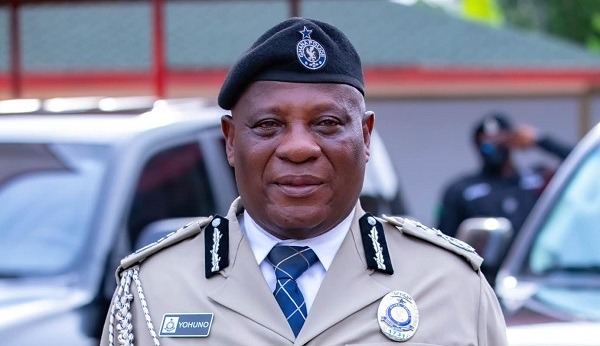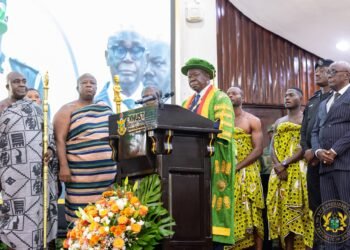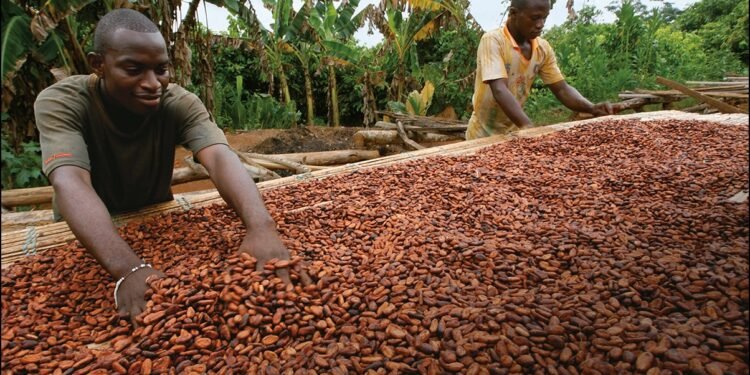The Ghana Police Service has taken a major step in a renewed and stepped-up crackdown on illegal mining activities, also known as galamsey, by reshuffling key commanders in areas most affected by environmental degradation associated with illegal mining.
Championed by Mr. Christian Tetteh Yohuno, the Inspector-General of Police (IGP), this audacious initiative is a part of a larger strategic war against illegal mining, which continues to devastate farmlands, forest reserves, and water bodies throughout the nation.
“This is said to be the first phase of the reshuffle exercise as many more are expected to follow to inject fresh energy in the fight against illegal mining activities in the country”.
Ghana Police Service
Certain Divisional and District Commanders who work in the Eastern South, Western, and Western North Police Regions—regions that have long been known to be hotspots for illicit mining activity—are particularly impacted by the reorganisation.
This action demonstrates the IGP’s strong determination to address one of the nation’s most enduring and damaging environmental and governance issues.

Police Anti-Galamsey Operations
The statement also revealed that the Ghana Police Service has made progress after a four-day, intensive, intelligence-led anti-galamsey operation, which seems to be part of a supplementary enforcement strategy.
According to the statement, the operation, which started on April 17, 2025, targeted illicit mining operations along the banks of the Tano River and in the Aboi, Subri, and Nimiri forests. It was centred on the Samreboi enclave in the Western Region.

The operation had a noteworthy result: 47 people were taken into custody for illegal mining. The suspects include four women, eight Chinese nationals, and 39 Ghanaians.
The international scope of galamsey operations in Ghana is once again highlighted by the presence of foreigners, especially the frequently controversial participation of Chinese nationals in illicit small-scale mining.
The statement noted that the police found a variety of weapons and mining equipment on the suspects, demonstrating the industrial scale and militarised character of some illicit activities.
Seventeen excavators, one bulldozer, four motorcycles, two Toyota Hilux cars, one RAV4 car, four pump action guns, one single barrel gun, fifty-four live BB cartridges, and eight pumping machines were among the items confiscated.

The police also claimed that these exhibits will be essential pieces of evidence as suspects go through the court system.
According to the statement issued by the Ghana Police Service, the suspects are presently in police custody and will undergo due process, demonstrating a commitment to prosecution and deterrence in addition to arrests.
Illegal mining, which frequently involves a complex web of domestic and international actors, has long threatened the country’s water security, endangered forest reserves, and weakened the rule of law.

Despite years of government-led interventions like Operation Vanguard and the Inter-Ministerial Committee on Illegal Mining, environmental groups and anti-corruption advocates have long bemoaned the lack of accountability and collusion among some elements within the security services, political elite, and galamsey operators, which has contributed to the resilience of illegal mining networks.
Since taking office, IGP Christian Tetteh Yohuno has vowed to uphold the integrity of law enforcement and reorient the police service as a respectable organisation that can fight national threats like violent extremism, cybercrime, and illegal mining.
As a result, the successful operation in Samreboi and the reorganisation of police commanders may help rebuild public trust and redouble efforts to combat the illegal mining threat.
The reorganization of commanders may also be a calculated move to remove compromise, enhance discipline, and strengthen professionalism within the security apparatus.
READ ALSO: Government Accused of “Potentially” Harming Economy with New Mining Policies























